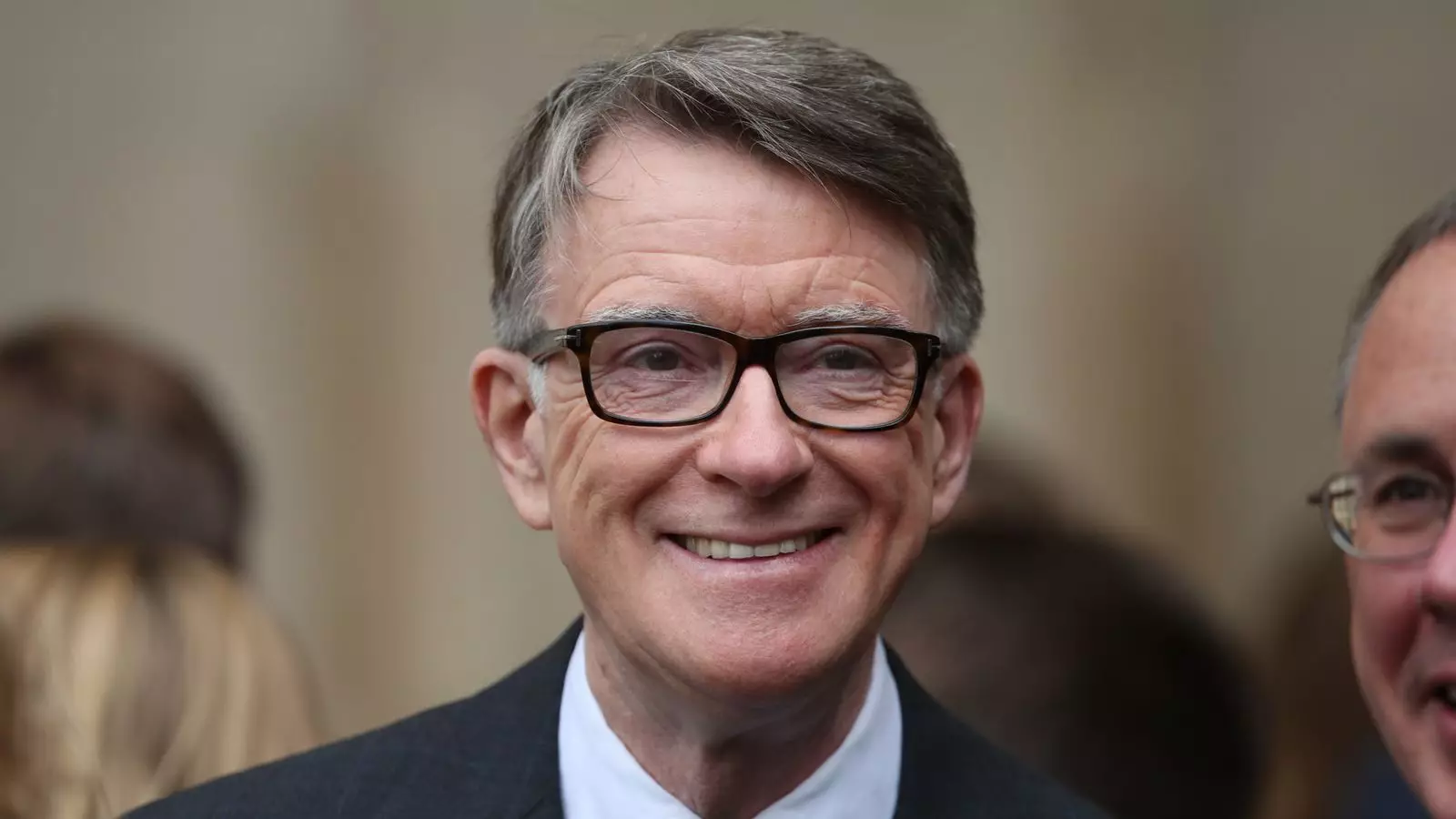The recent appointment of Lord Mandelson as the UK ambassador to the United States has stirred significant controversy, particularly within the context of the current political climate surrounding President-elect Donald Trump. Chris LaCivita, co-manager of Trump’s presidential campaign, did not hold back when addressing Mandelson’s new role, referring to him as an “absolute moron” in a post on the social media platform X. This emphatic condemnation arises from Mandelson’s previous remarks about Trump, where he labeled the incoming president a “danger to the world” and called him “little short of a white nationalist and racist,” comments that have not gone unnoticed by supporters of Trump.
The exchange signals a deeper rift not only between the two countries but also within the political landscapes of both nations. LaCivita’s post is emblematic of a populist backlash against perceived elitism, a theme that resonates with Trump’s base. As Mandelson steps into his role at a time when tensions remain high, it underscores a struggle between established political ideals and newer, more explosive narrative forms emerging in contemporary politics.
As Lord Mandelson officially takes on this pivotal diplomatic post, the timing couldn’t be more crucial. His appointment comes as the UK seeks to reinforce its long-standing “special relationship” with the United States, particularly amidst the challenges posed by a shifting global political landscape. Sir Keir Starmer, the leader of the Labour Party, expressed optimism regarding the appointment, suggesting that alongside challenges lie significant opportunities for the UK’s economy and national security.
Mandelson’s experience is ostensibly a strong asset as the country navigates these complexities. However, his storied political career—consisting of influential roles across different British administrations—also brings a wave of dissent, especially from the left-wing factions within the Labour Party. The irony of his appointment as the “Prince of Darkness,” a moniker associated with his strategic political play during New Labour’s rise, serves as a reminder of the profound ideological divides that continue to shape UK politics.
Notably, Mandelson’s appointment coincides with significant leadership challenges for Starmer as he attempts to unify a party still reeling from division and the legacy of Jeremy Corbyn’s tenure. Starmer’s ambitions to bring Labour back to central relevance in British politics may hinge on his ability to present a cohesive vision—and appointing someone like Mandelson, with a background steeped in centrist politics and trade success, signals an intention to appeal to moderates both domestically and across the Atlantic.
Moreover, the broader implications of Mandelson’s role as ambassador raise questions about the UK’s future direction in foreign policy following Brexit. As political analyst commentaries suggest, his grasp of trade relations could be instrumental in navigating the UK’s post-Brexit relationship with the US, especially in light of the complexities surrounding international trade agreements and diplomatic negotiations.
Acknowledging the transition, Sir Keir Starmer took time to commend the outgoing ambassador, Dame Karen Pierce. Her term marked a historic period as the first female to hold such a position, and her tenure is characterized by steadfast dedication to her diplomatic role. Her departure leaves a gap that Lord Mandelson will need to fill amid a backdrop of polarized opinions. While her experience is appreciated, the question remains whether Mandelson can forge a path that resonates with both American and British audiences, and more importantly, how he will mitigate the pointed criticisms that characterize the current political discourse.
The appointment of Lord Mandelson as UK ambassador to the US is a pivotal development. It brings to the fore a clash of political cultures, a renewed focus on diplomacy, and a potential reshaping of international relations, all while revealing the underlying tensions within British politics as it stands. Just as Mandelson’s strategies once fashioned the landscape of New Labour, this new chapter may redefine how both nations approach their intertwined futures, against the backdrop of past disputes and present allegiances.

